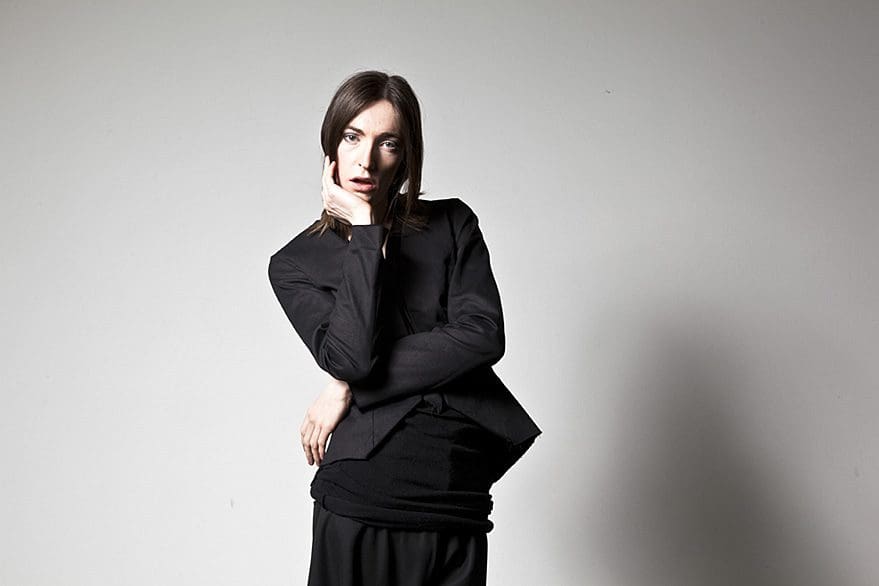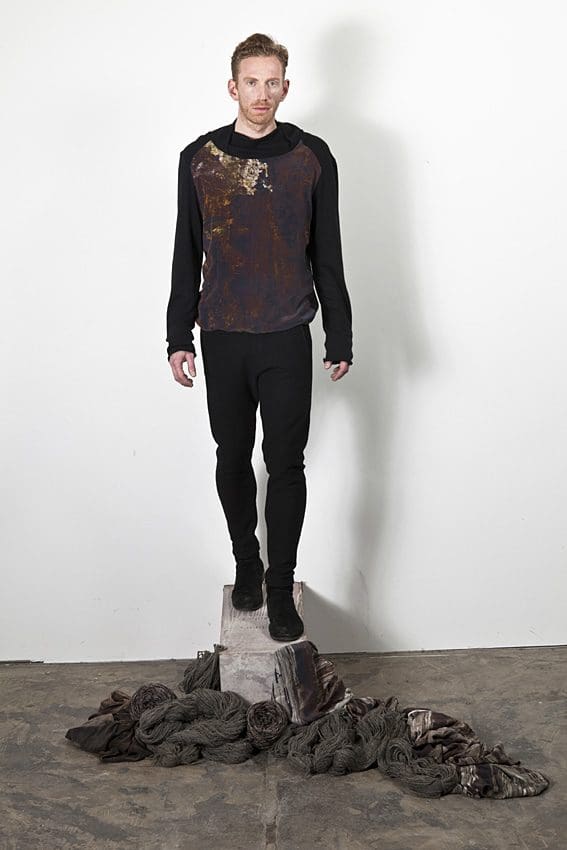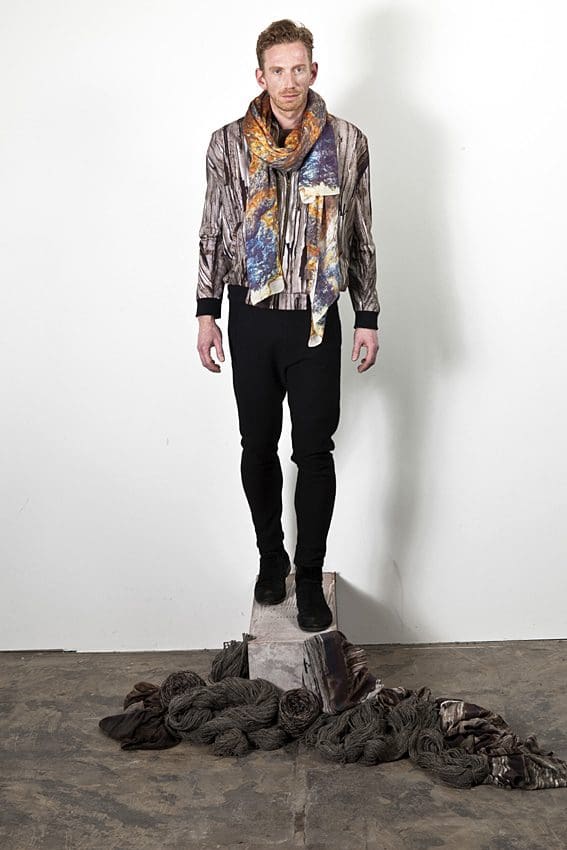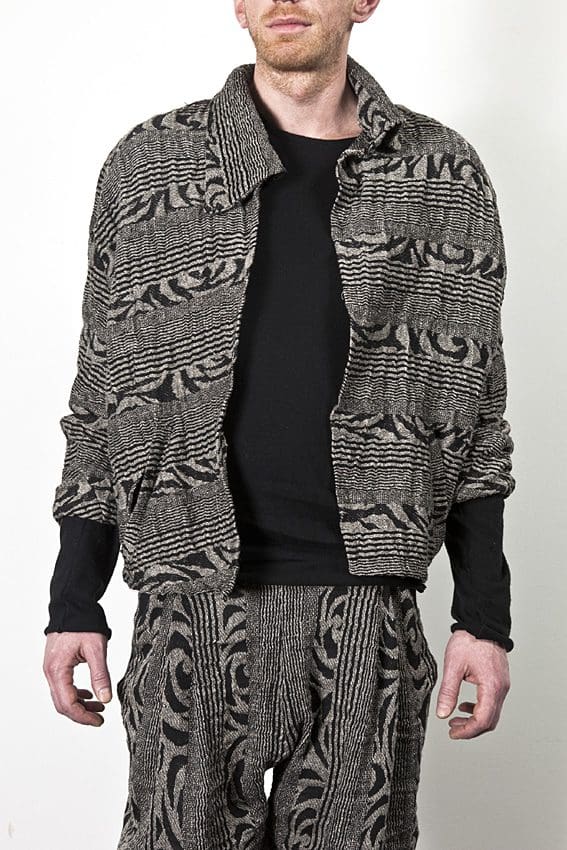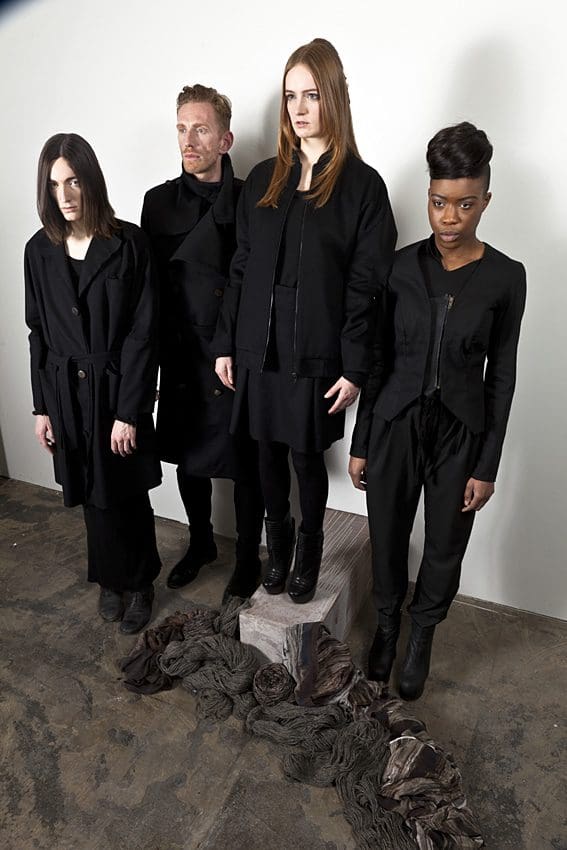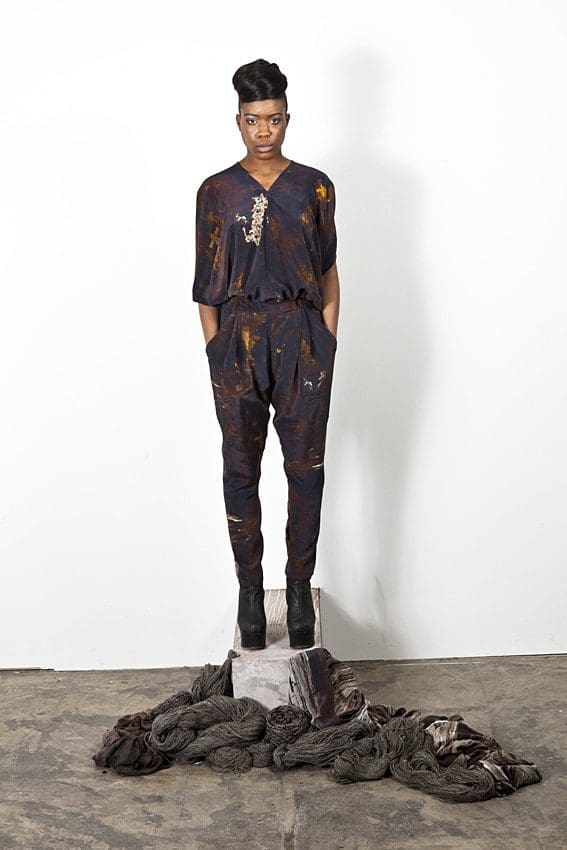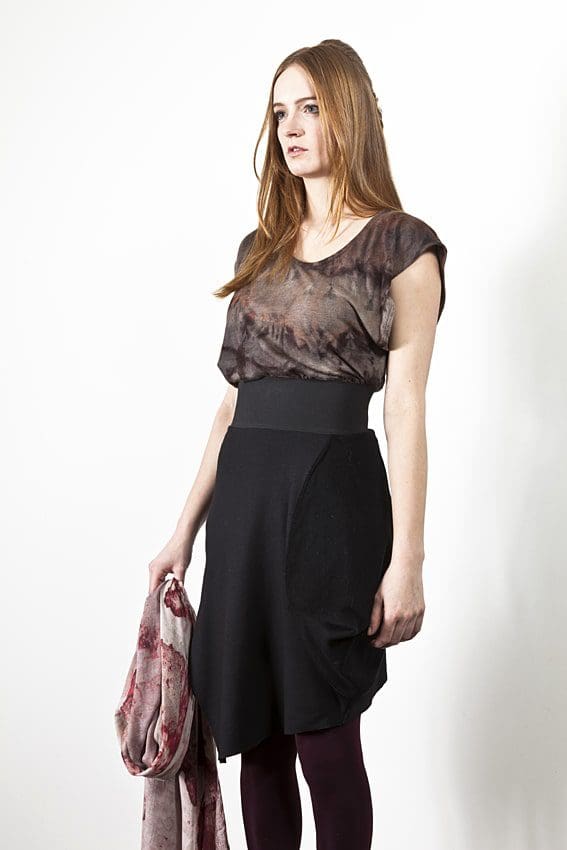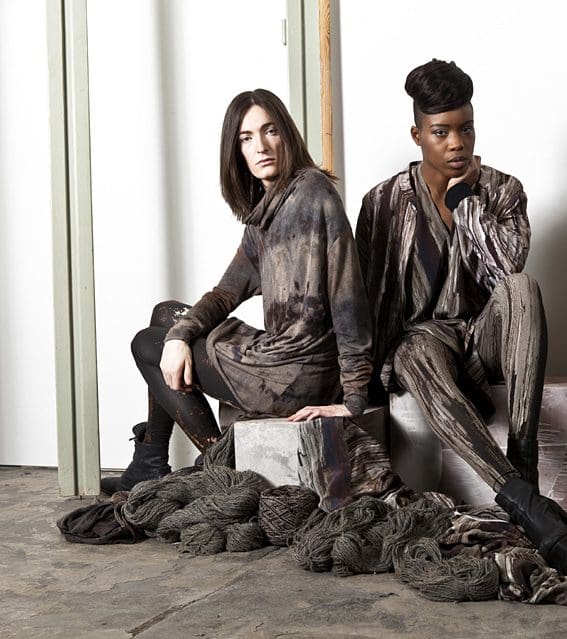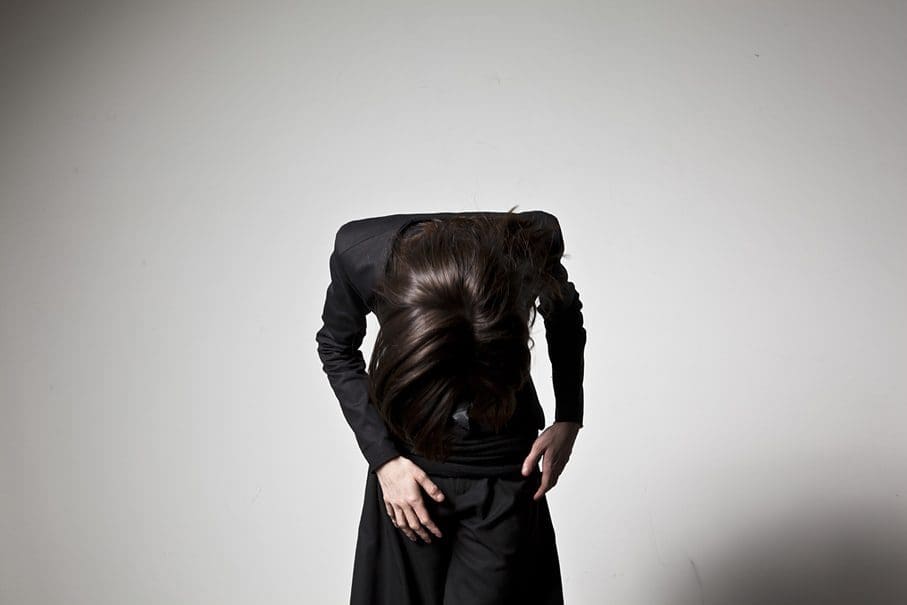Jim Morrall talks to Berliner Julia Heuse about her AW13 collection, inspired by Duchamp’s objets trouvés.
Flaking paint, decomposing surfaces and trash are Julia’s objets trouvés of choice. Translating an unrecognised beauty in the banal into a line of menswear and womenswear, the Berlin fashion designer has created a collection that is surprisingly accessible. Her aesthetic marries grunge luxe to an impressive study of surface and print.
JIM MORRALL: What were your motivations in branching off with an eponymous brand?
JULIA HEUSE: First of all it was always an eponymous brand, and now that Benjamin is gone already since two years I thought it`s time to change the name. It is kind of still the same brand with some slight changes, and the font of the logo remains. It‘s just Julia without Ben now.
JIM MORRALL: What differences do you see in your own collection as opposed to what you did as part of Julia and Ben?
JULIA HEUSE: I think my own collection is more grown up, I learned a lot over the years with JULIAANDBEN. Especially on how to build a collection from the fabrics and products so that you can really produce it in the end without going mad. I think I am still in a process of finding my own identity on the second JULIAHEUSE collection, which I am working on right now; I will have a few more little details that are partly handmade and probably add other personal features that did not exist with JULIAANDBEN. But I stick to the whole decay and surface thing. Even with JULIAANDBEN I was mostly in charge of the fabrics and the dying… and now the prints that are based on found objects and surfaces around me. I see a fragility in these things that deeply touches me. I love Duchamp’s reduced use of colour. I also use objects that at first glance are not fashion or art.
My work has always been about surfaces, fades and structures. Recognising the beauty in used and damaged objects, I find little microcosms that become apparent through my work. Prominently imprinted on a silk scarf, the structures of a disintegrating wall or the beauty of flaking paint is made visible to others. I hope that my collection elegantly proves that decay can have its own eternal beauty.
JIM MORRALL: Did you miss working in tandem? Is there a big difference in the creative process?
JULIA HEUSE: To be honest in the beginning I did, but after some time it became clear to me that I did not really miss it in the creative process. This process for me happens more while falling asleep, while riding my bike, or after waking up . Then when i go into the studio it‘s more about transforming the ideas into something that other people can see – an actual product. But what I missed and still terribly miss is having a partner on my side. Running a label is so much more than beeing creative, it`s about making decissions all the time. Paying bills, decide if something is neccesary or not, communication with the outside world etc. It`s a million things involved and sometimes it feels lonely to do it all alone.
JIM MORRALL: Are there any actual objets trouvés in particular that were inspiring?
JULIA HEUSE: These are not objet trouvés in a Duchampian sense, because I don’t recontextualise found objects, but transfer characteristics of certain objects that I find with my camera. Changing objects, no less – to my fashion. Colours that flaked off old wooden frames, stones from the fairy grottos that change colours under the influence of changing climatic conditions.
I often find beauty in microcosmoses on things that other people don`t even realise because they are just lying around on the floor or the street or they are trash
JIM MORRALL: Were you at all inspired by Husssein Chalayan’s buried dresses from his graduation show?
JULIA HEUSE: No to be honest I wasn`t. I always heard or read that he burried his graduate collection but actually I just now that you asked Googled it to see what it looked like. I quite like it though.
For more information on Berlin fashion designer, Julia Heuse, see http://juliaheuse.com/


